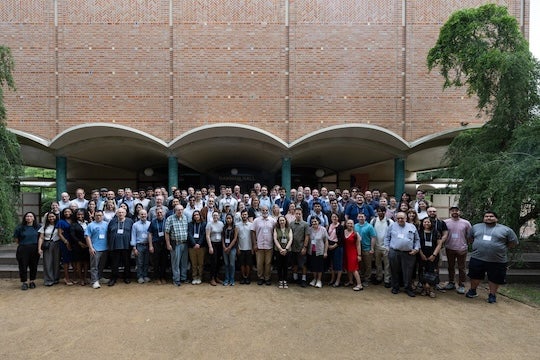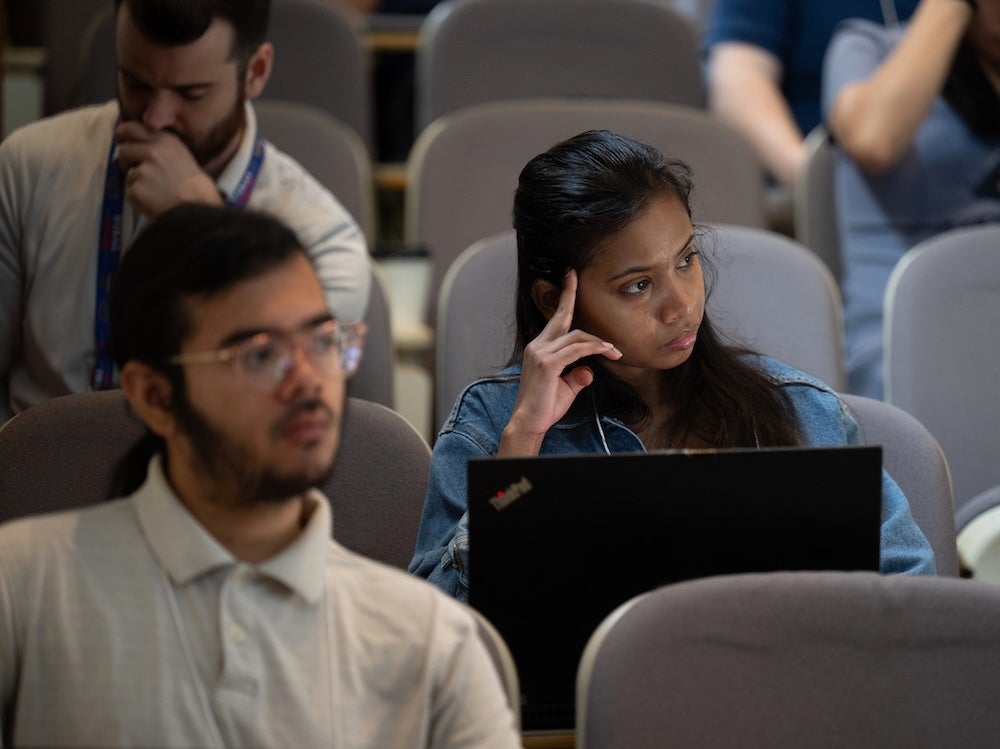Rice University hosted scientists from more than 40 institutions for the 2025 U.S. Compact Muon Solenoid (CMS) collaboration meeting May 21-23. The event brought together key contributors to an advanced particle physics experiment that plays a crucial role in verifying how fundamental particles acquire mass through the Higgs mechanism.

This year’s meeting came on the heels of the April announcement of the 2025 Breakthrough Prize, often referred to as the “Oscars of Science.” This prestigious award was given to an international team of physicists for their significant contributions to the four major experiments conducted at the Large Hadron Collider. Among the honored researchers from Rice were Paul Padley, Frank Geurts, Karl Ecklund, Wei Li and Darin Acosta. Their precise work has helped confirm the properties of the Higgs boson and explore the quark-gluon plasma, a state of matter believed to have existed just moments after the big bang.
The annual meeting featured technical presentations and scientific talks by leading experts, including Anadi Canepa, deputy spokesperson for CMS, and Paula Tropea, CMS technical coordinator.
Undergraduate students such as Danielle Nunez of Randolph College and Raven Lee of Tougaloo College presented research from their participation in the U.S. CMS Summer Undergraduate Research Internship Program. The program offers students the chance to work alongside scientists at more than 50 U.S. institutions on projects at the forefront of physics.

